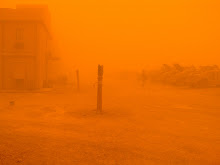By: Associated Press
Families of America’s war dead will be allowed to decide if news organizations can photograph the homecomings of their loved ones, Defense Secretary Robert Gates said Thursday.
Gates said he decided to allow media photos of flag-draped caskets at Dover Air Force Base, Del., if the families agree. A working group will come up with details and logistics.
The new policy reverses a ban put in place in 1991 by then President George H.W. Bush. Some critics contended the government was trying to hide the human cost of war.
"We should not presume to make the decision for the families — we should actually let them make it," Gates said at a Pentagon news conference.
"We’ve seen so many families go through so much," added Adm. Mike Mullen, chairman of the Joint Chiefs of Staff. He said the goal is to meet family needs in the most dignified way possible.
White House press secretary Robert Gibbs said President Barack Obama asked Gates to review the policy of media coverage of the fallen returning to Dover. He said Gates came back with a policy consistent with that used at Arlington National Cemetery.
Gibbs said it gives families the final say and "allows them to make that decision and protect their privacy if that’s what they wish to do. And the president is supportive of the secretary’s decision."
Shortly after Obama took office, Democratic Sens. John Kerry of Massachusetts and Frank Lautenberg of New Jersey also asked the White House to roll back the 1991 ban.
Over the years, some exceptions to the policy were made, allowing the media to photograph coffins in some cases, until the administration of President George W. Bush and the wars in Iraq and Afghanistan.
A leading military families group has said that the policy, enforced without exception during George W. Bush's presidency, should be changed so that survivors of the dead can decide whether photographers can record their return.
Thursday, February 26, 2009
Subscribe to:
Post Comments (Atom)




No comments:
Post a Comment